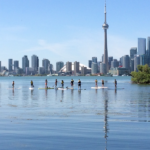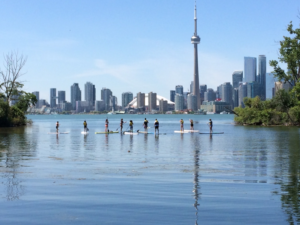The sociology and biology of radical hope


Time-out for critical gaze, transnational mutual aid and radical hope.
Photo credit: Vural Özdemir
Art and literature that ignite progressive social movements have a secret active ingredient: an enduring hope for change. Hope prevents public lethargy, and keeps critical thinking and political engagement alive. Hope is a form of resistance to cruelties, realpolitik and autocrats of the 21st century.
But how do we keep hope alive amid multiple crises? Consider, for example, climate emergency, Covid-19 and other zoonotic infectious outbreaks that jump from animals to humans and are fueled by anthropocentrism, the rise of populist autocrats, ossified neoliberal universities weakening critical scholarship, and workplaces that commodify everyone and everything under the sun and the moon, threatening the possibilities for a livable planet. For democracy and freedoms, more than any other time in history, we need radically new ways of thinking about and cultivating hope in the 21st century.
Cultivating hopeful expectations, through local and transnational mutual aid programs, can make the expectations on radical democracy and social change realizable. Mutual aid is not limited to economic solidarity, however. Sometimes, mutual aid is being a good listener and lending an ear, and breaking bread together. In an interview with Emi Kiyoma, E. Tammy Kim notes that “mutual aid could mean dinner, political debate, sanctuary from an abuser, protests, a glamorous pair of shoes, babysitting, or a warm shower.”.1 Other times, mutual aid means seeking new theory and practices to discover that elusive ingredient of ground up revolutionary politics, radical hope.
Hope has Biology
Hope is not merely an abstract positive expectation that sits between our ears. Research in drug development and neurobiology demonstrates that words and our expectations about the future have power over us, and change our brain chemistry and organ functions. If we expect a future better than the present, we may be more likely to achieve exactly that. Conversely, if we expect a dark future, it may well enhance the odds of that gloomy future.
In other words, not only “we are what we eat”, as nutrition scholars say, but “we are also what we expect and imagine about the future” insofar as brain biology is concerned.
The biology of hope is akin to a self-fulfilling prophecy whereby positive expectations actually shape our brain chemistry to enable that very future. The biology of hope and positive expectations has been known in the field of drug development for a long time. But it remains an “unknown known” in the field of international affairs and democratic theory. For this, let’s look at the science of drug development.
Sociology of Everyday Expectations: What Placebo Research Says
The word ‘placebo’ first appeared in a Latin translation of the Hebrew Bible in the 1300s, with the original meaning of ‘to walk’. Because of a mistranslation, placebo was defined as ‘to please’.
A placebo is a pill without chemical activity. Placebos are administered to patients assigned to the control group in clinical trials of new drugs. For example, consider 100 patients with depression: half are treated with a new antidepressant, while the remaining 50 patients receive the placebo. If the patients who received the drug improve more than those who received the placebo, this is taken as evidence in support of the effectiveness of the new antidepressant.
But this is not where the interesting news is. The patients who receive the placebo also show some improvement in their symptoms. In psychiatry, sleep disorders, allergies and immune system function, and a host of other medical conditions, placebo effects are prominent.
Since the 1970s, research has shown that placebo effects are real, have a genuine biological basis,2 and are distinct from the spontaneous remission of untreated disease. For example, placebo-induced pain relief (analgesia) is related, in part, to release of opioids (e.g., endorphins) in the brain, produced by the body to ease pain and reduce anxiety.
The placebo response often has a large magnitude. For example, during the years from 1991 to 2015, the average proportion of placebo responders was reported as 35% to 40% in clinical trials of antidepressants in adults with major depression.3
Placebos cannot cure an illness such as cancer or a broken bone. Placebos do not have a place in medical care. There are implications and lessons to be learned, however, from the use of placebos in clinical trials and drug development, with an eye to radical hope for democracy, and new arts of resistance to oppression.
The act of placebo or drug administration is enveloped in a social context: rituals, symbolism, communication between patients and physicians, the caring ambience of the clinic, conditioning and associative learning effects, to name but a few factors. It is precisely this larger cultural context of a therapeutic encounter that creates positive expectations and hope, and by extension, changes in biological measures such as blood pressure, mood, fatigue and pain thresholds and improvement in patients’ symptoms. All drugs and therapeutic interventions include a placebo component to varying degrees.
Imagine how having hope for freedom, progressive social change and democracy could make people feel less fatigued and anxious. Would such hope not empower the struggles by artists, writers, journalists, and prodemocracy workers, and help find creative solutions against tyranny?
Nocebo: The Bad Cousin of Placebo
Just like positive expectations have impacts on brain biology, negative expectations and adversarial context that accompany an encounter (e.g., poor physician and patient communication, oppressive social and political setting surrounding an artist, journalist or writer in an autocratic country or in exile) can worsen body functions. These are known as nocebo effects, the opposite of placebo effects.
Nocebo effects are common. In a study of patients who had discontinued cholesterol-lowering drug therapy because of side effects, 90% of the symptom burden was attributed to nocebo effects from negative expectations.4 In New Zealand, sensationalized television news coverage of a thyroid hormone product formulation was noted as a potential explanation for a surge in the overall rate of reported adverse reactions.5
Expectations about the future, be they positive or negative, cannot be taken lightly. They affect brain chemistry and body functions, and vice versa.
New Sociologies of Exile
A context in which we sorely need radical hope and mutual aid for progressive change is the rise of global populism and ‘elected autocrats’. It is fascism that we have been witnessing under authoritarian consolidation of power by populist rulers in far-flung places like Hungary, Poland, Turkey, India, Philippines, Brazil, not to mention Trumpism. Human rights and free and fair elections are threatened in countries run by populist autocrats. Democracy advocates risk being jailed, continue resistance under very difficult conditions, or go into exile.
People can also experience a de facto state of exile even without leaving their land or country. The seizure of human rights and freedoms by autocrats can cause alienation and diminish the sense of belonging to places and spaces wherein a person is accustomed to live.
There is now a critical mass of prodemocracy groups, artists, writers, journalists, and academics, in exile from countries run by populist autocrats. These new communities in exile, and human values and expectations of migrant and refugee communities and prodemocracy actors, are well poised to create new forms and formats of solidarities and mutual aid with people in their homelands who are resisting oppression from inside the fortresses of autocracy.
A “Time-Out” from Fascism
If expectations do affect brain biology, an important corollary for radical hope in communities in exile is this: we need to have periodic “time-outs from fascism” to escape the negative social settings and their nocebo effects, and enhance the occasions that elicit positive expectations and radical hope. To this end, placebo and nocebo effects introduced in this article represent a framework to understand the biology of radical hope, and how the brain responds to the sociology of everyday life.
Writers, prodemocracy workers, journalists, artists and academics, in exile from autocratic countries or residing amid populism and autocracy, need safe spaces to write, think and do work in solidarity to strengthen global democracy.
I propose a new idea, “crowdfunded planetary mobility programs”, for prodemocracy workers, as a time-out from fascism and to cultivate ground up revolutionary politics, so one can remember to be free once again, and that another life is possible, instead of the echo chambers of despair. To quote Ursula K. Le Guin, we need “writers who can remember freedom. Poets, visionaries — the realists of a larger reality”.6 What we have learned from the biology of hope and sociology of emerging communities in exile tells us that we need ongoing mobility for prodemocracy workers to keep their expectations and hopes high, and stay clear from echo chambers of despair and nocebo effects.
Crowdfunding is an actionable possibility, to fund new planetary mobility programs, given the critical mass of prodemocracy communities in exile or living within autocracies. Crowdfunding, by virtue of not allowing a single dominant funder, offers prospects for a democratic funding mechanism to support radical hope for democracy and freedoms. Such distributed-sourcing of funds might offer crosscheck mechanisms to prevent travelers from being consumerist tourists as opposed to engaging in solidarity actions. Some of this radical hope and democracy travel could be on bicycle or public transport for solidarity among local groups living in exile, or by train and public transport with the crowdfunded sources, to reduce the ecological impacts of travel.
A planetary mobility program that allows, for example, a week of travel every six months, could cultivate the much-needed prefigurative politics of direct action, mutual aid, voluntary association, and by extension, new forms and formats of solidarities between prodemocracy workers living within the fortresses of autocracies and those in exile. For example, in March 2022, a two-day conference was held in Berlin for democracy and freedoms in Turkey.7 While the latter conference is not identical to the crowdfunded planetary mobility programs for democracy and freedoms proposed in this article, it speaks to the value and relevance of transnational mutual aid among prodemocracy workers with diverse backgrounds.
We should integrate the current knowledge on biology of radical and enduring hope with emerging sociologies of expectations for radical democracy and transnational mutual aid. A crowdfunded planetary mobility program for artists, writers and prodemocracy workers living in exile or within the fortresses of autocracy will go a long way to this end.
Notes
1. E. Tammy Kim, “Making Space” Lux, Issue 3, November, 2021, (accessed 08/12/2022).
URL: https://lux-magazine.com/article/aileens-mutual-aid/
2. Andrea W.M. Evers, Luana Colloca, Charlotte Blease, et al. “Implications of Placebo and Nocebo Effects for Clinical Practice: Expert Consensus” Psychotherapy and Psychosomatics, 2018;87:204-210, (accessed 08/12/2022).
URL: https://doi.org/10.1159/000490354
3. Toshi A Furukawa, Andrea Cipriani, Lauren Z Atkinson, et al. “Placebo Response Rates in Antidepressant Trials: A Systematic Review of Published and Unpublished Double-Blind Randomised Controlled Studies” The Lancet Psychiatry, 2016;3:1059-1066, (accessed 08/12/2022).
URL: https://www.thelancet.com/journals/lanpsy/article/PIIS2215-0366(16)30307-8/fulltext
4. Linda Geddes, “‘Nocebo effect’ cause of most statin side-effects, study suggests” The Guardian, November 15, 2020, (accessed 08/12/2022).
5. Kate Faasse, Greg Gamble, Tim Cundy, et al. “Impact of television coverage on the number and type of symptoms reported during a health scare: a retrospective pre–post observational study” British Medical Journal Open, 2012;2:e001607, (accessed 08/12/2022).
URL: https://bmjopen.bmj.com/content/2/4/e001607
6. Jeff Baker, “Ursula K. Le Guin’s fiery speech, and the overwhelming reaction to it” The Oregonian, November 20, 2014, (accessed 08/12/2022).
URL: https://www.oregonlive.com/movies/2014/11/ursula_k_le_guins_fiery_speech.html
7. “Democracy and Freedom Conference starts in Berlin” Medyanews March 6, 2022, (accessed 08/12/2022).
URL: https://medyanews.net/democracy-and-freedom-conference-starts-in-berlin/